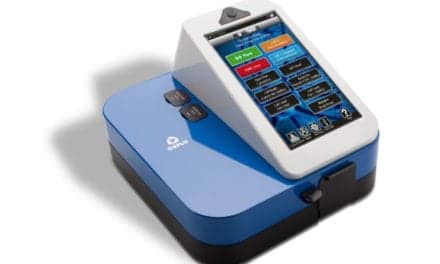At the AACC Innovation Roundtable on Tuesday, July 29, leaders from Abbott highlighted a number of new technologies with potentially significant impacts on the molecular, point-of-care, and bio-identification markets.
Troponin is a cardiac protein whose levels become elevated following injury to the heart, enabling the biomarker to be used to detect cardiac arrest. Heart attacks in women frequently go undiagnosed, since many women don’t display symptoms such as light-headedness, dizziness, or chest pain often seen in men. Rather, female symptoms more often take the form of heartburn, loss of appetite, tiredness, weakness, or coughing. The Architect Stat High Sensitive Troponin-I (hsTnI) Assay blood test can evaluate whether a patient has had a heart attack within 2 to 4 hours, speeding diagnosis and shortening the time to treatment.
The i-Stat handheld analyzer can be used to perform a wide range of common blood tests at the point of care, reducing the wait to generate typical lab results. Featuring disposable, single-use cartridges, the device performs critical care tests within 15 minutes, including cardiac markers, blood gases, chemistries and electrolytes, coagulation, lactate, and hematology. Using only 10mL of blood, the device can be useful in triage or military environments, during natural disasters, and at a patient’s bedside.
The IRIDICA platform is scheduled for release in CE-marked countries within the next 12 months and is intended to speed diagnosis for critically ill patients, such as those suffering from sepsis or pneumonia. The platform has the capacity to diagnosis hundreds of bacteria, viruses, and fungi, using a four-step system: following collection of a patient sample, the pathogen’s genetic material is extracted and amplified using a polymerase chain reaction. A mass spectrometer determines the molecular weight of the genetic sample, while mathematical algorithms are finally used to identify the pathogen. The platform is designed to complete testing within 8 hours, allowing physicians to accelerate diagnosis and treatment.




